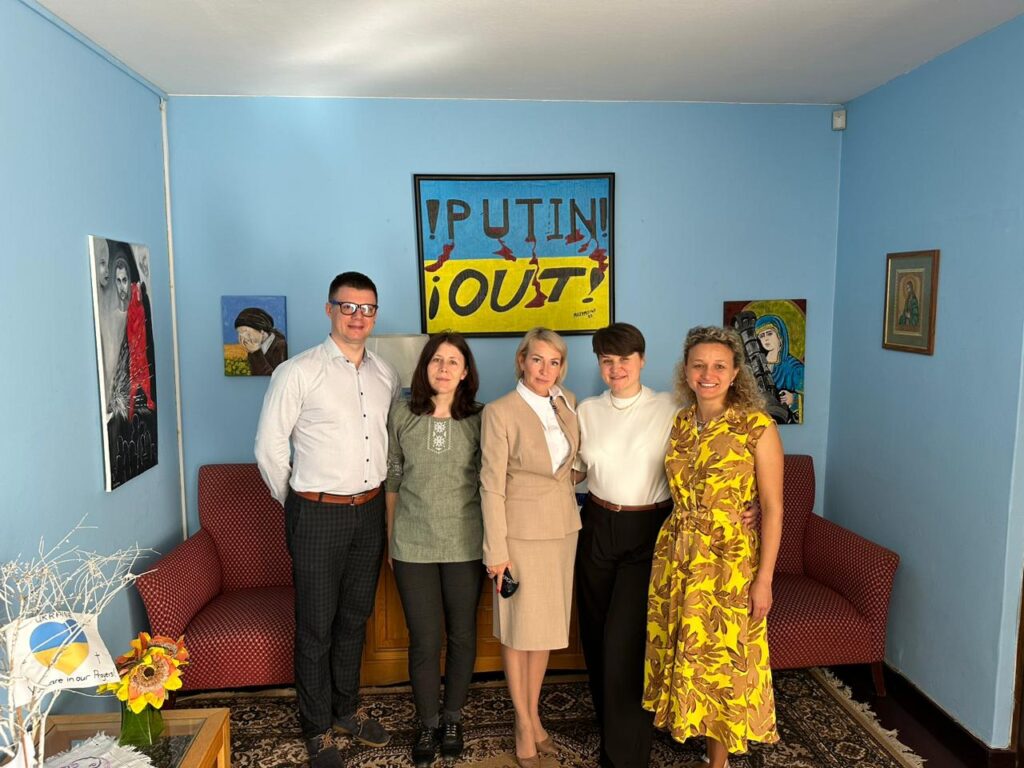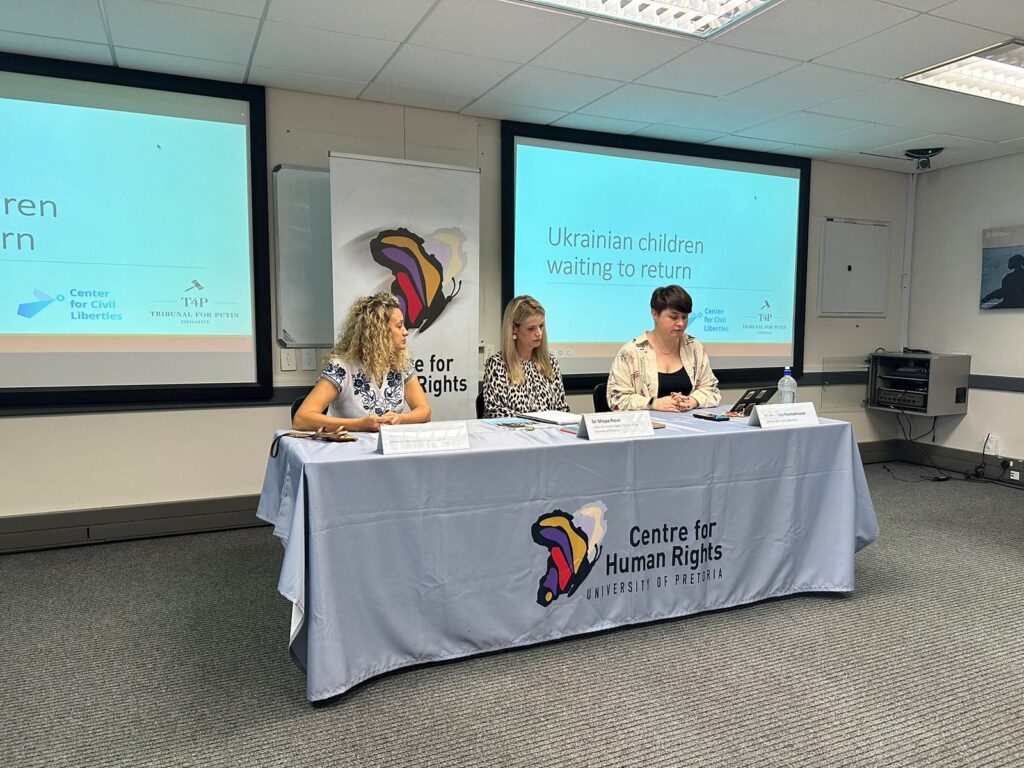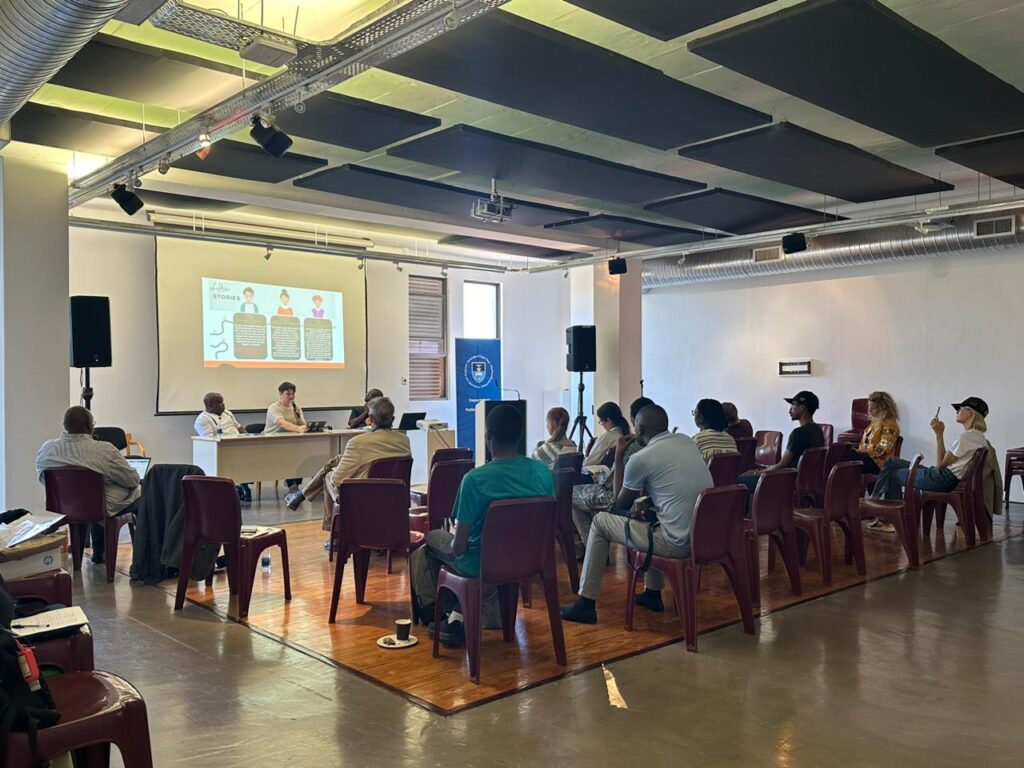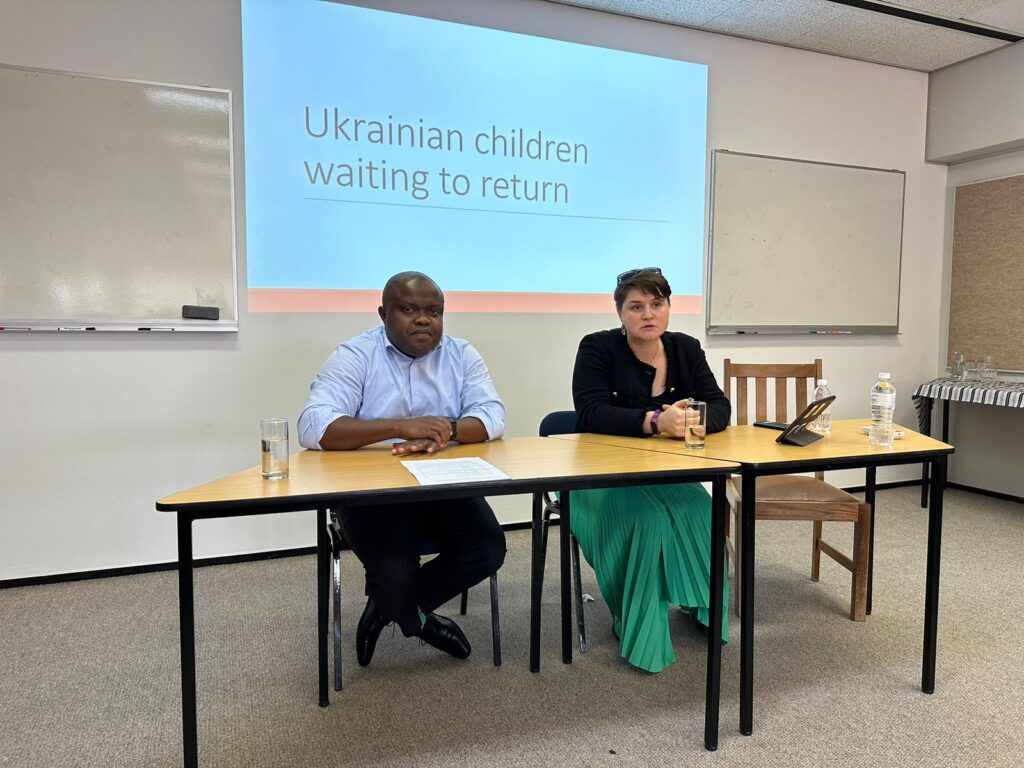“Ukraine is much closer to those countries that undergo transformation processes, build democratic society institutions and fight against the encroachments of autocracies of various kinds” Oleksandra Romantsova speaks about the important event she attended in South Africa
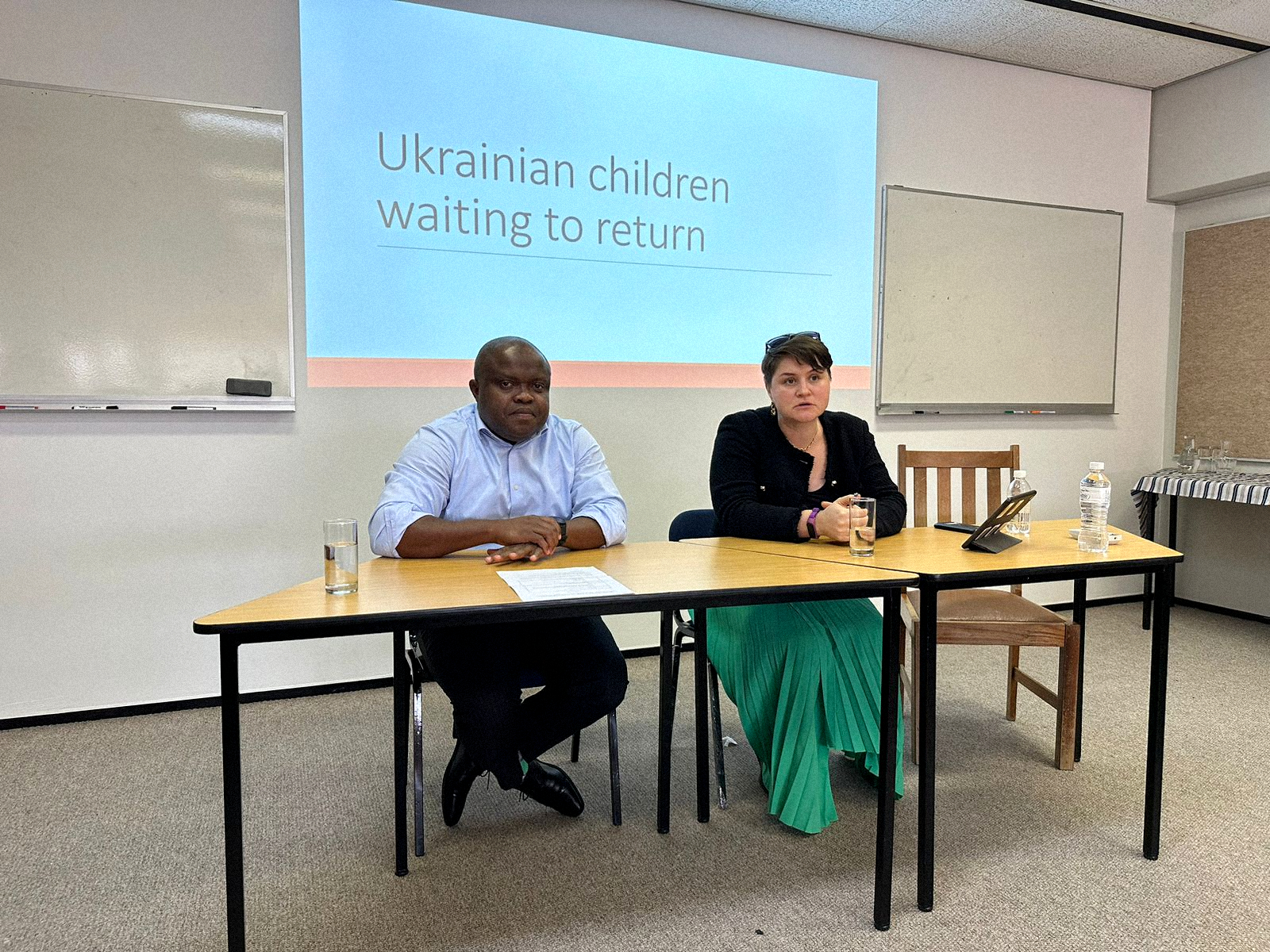
In March, Oleksandra Romantsova, Executive Director of the Center for Civil Liberties, travelled to South Africa and attended several important events there. Among them were a large FORBES WOMAN AFRICA Leading Women Summit held on 8 March and seminars in four cities with the involvement of university communities and the Institute for Security Studies.
FORBES WOMAN AFRICA Leading Women Summit
On 8 March, the day for the protection and equal rights of women, the women’s summit of all Africa was held to highlight the role of female peacemakers and stateswomen in the creation of a new world order. In fact, they make a significant contribution to international peace and security in countries plagued by conflicts and wars. This topic is relevant to Afghanistan, Ukraine, Sudan, the Democratic Republic of Congo, and other countries. First ladies, female leaders of global organizations and even female war reporters attended the session.
For the whole day, women reflected on the situation with their rights, representation and participation in decision-making in completely different areas: public activity, sports, politics, and even steering the ship. Many stories showed that the challenges encountered by women in Africa were quite similar to those that women in Ukraine faced in the last ten years. Traditional problems exist with decision-making, leading positions, equal salaries, opportunities for launching businesses, and development in spheres that are stereotypically considered to be for men only.
“My speech was about women in crisis situations. I spoke about our role in countering the current aggression. I talked about how women pursued equal opportunities in the army, and now they represent politics and diplomacy, start businesses during wartime, help support army logistics, serve at the front or in army structures, etc. Indeed, I gained much interest and support from those African women who gathered at this really impressive summit. This new audience experiences vulnerability and, therefore, is much more ready to sympathise with Ukraine and understand what is happening there”, Oleksandra Romantsova shares.
It was a great honour for the Center for Civil Liberties to attend this summit and demonstrate the solidarity of women across the world, including the solidarity of women from Ukraine with women in Africa. It was important for the Organization to be able to speak to audiences that could be leveraged to gain support from the societies of African countries, which can still influence the position of their governments, including in the United Nations.
Seminars on regional security, nuclear energy and the return of abducted children
The Ukrainian Association of South Africa is a local initiative that unites about five thousand people who help and support Ukraine. They are mostly Ukrainians and their families. Dzvinka Kachur, a Ukrainian woman, Honorary President of this Association, and researcher, launched a project in which she invited researchers from Ukrainian and African universities to try to formulate a common position on the following three issues. They are part of President Zelenskyy’s peaceful plan and were also supported by the South African president, Cyril Ramaphosa.
The first issue was regional security, the second one was nuclear energy security, and the third one was the return of children abducted by the Russian army in the territory of Ukraine and transferred to the Russian Federation. Oleksandra Romantsova attended four seminars held between 10 and 15 March in different cities: Cape Town, Johannesburg, Stellenbosch and Pretoria. There, together with members of university communities and the Institute for Security Studies, she discussed opportunities for cooperation between South Africa, the African countries and Ukraine in these three areas.
“In matters involving children, it was necessary to start from scratch. I had to show where the occupied territories were, how the Russian troops were taking children away and how the Russian state and the Russian educational system were hammering into children’s brains the idea that their Ukrainian identity was fake and that they should form a Russian one. We explained many peculiarities, which helped us clarify our situation in South Africa, where human rights are a commonly recognised value, especially after the fall of apartheid.
It is the demonstration of the Russian Federation’s systemic violations of human rights that resonates with them and inspires them to help us. This is especially true for those structures where the African organizations are much more experienced than the Ukrainian ones, which have always focused more on the Council of Europe and OSCE than on the United Nations. By contrast, African organisations have more experience in working within the UN structures.
I liked the courage and sacrifice of Ukrainians in South Africa very much. And especially that of a particular Ukrainian woman, Dzvinka Kachur, who, since 2017, has been searching for each and every Ukrainian in South Africa, uniting them, opening a Ukrainian school there, and doing much more. It means that even if you are so few — 5,000 people in a population of 62 million, you can still be an important voice representing your home country. And this inspires us”, Oleksandra explains.
Cooperation between Ukraine and South Africa
Oleksandra emphasises the impressive results of her trip to South Africa. Due to her attendance and speech at the Summit, not only the Center for Civil Liberties but all Ukrainian women became more visible. The Editor-in-Chief of the local Forbes edition asked Oleksandra to give her an additional interview and tell her what the Ukrainian women wanted to hear from the African women.
The key result of the seminars held in universities was the planning of joint actions involving these organizations and the continuation of this project, which can play a role in enhancing Ukraine’s visibility and importance as a powerful voice and not as just a state somewhere near Russia. As a result, three documents should be drafted and submitted to the African Union and possibly to various UN institutions.
Ukraine is much closer to those countries that undergo transformation processes, build democratic society institutions, and, in particular, fight against the encroachments, both internal and external, of autocracies of various kinds. These are South Africa and the young countries of Latin America and Asia. Sometimes, our Western partners find it difficult to understand the situation where you cannot be certain that all institutions function effectively or that the institutions are well-built and meet all the needs of modern Ukrainian society. By contrast, the African and other countries which have been victims of colonization, large-scale wars or exploitation find it much easier to understand the situation where Ukraine finds itself now. And it is easier for them to sympathise with us because of the injustice that is occurring.
“There can be a successful partnership between Ukraine and African countries to support each other, build economic ties and respect human rights and each other regardless of their contribution to the global economy or, for instance, whether they possess any special kind of weapons. It is much more important to maintain diverse contacts and support each other in the processes of both democracy building and the development of institutions that are responsive to public needs”, Oleksandra Romantsova emphasises.
Center for Civil Liberties operates with the support of the European Union.

